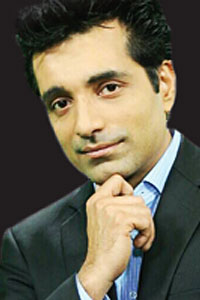
Images of joyous disciples and monks were visible in the wee hours yesterday at the sprawling campus of Wat Phra Dhammakaya in Pathum Thani's Klong Luang district after Thailand's premier investigative agency -- the Department of Special Investigation (DSI) -- and the military government failed to find the elusive monk.
The siege of the temple, which started on Feb 16, ended late on Friday evening with the DSI announcing that they failed to find Phra Dhammajayo in the 400-hectare complex, although as a face-saving measure they announced that they managed to impose 43 criminal lawsuits against people who defied the Section 44 orders issued by the coup makers -- the National Council for Peace and Order (NCPO).
The siege ended with not much damage. There were two deaths over the course of 23 days, one by suicide and the other from illness. Communications services, such as internet and telephone access, have been restored, and visitors are now allowed to re-enter and exit the temple.

Umesh Pandey is Editor, Bangkok Post.
The DSI put on a brave face in its announcement that it was backing out and stressed that the temple needs to be restored to the way it was before the siege began. The climbdown comes after the DSI and the government had as many as 4,500 officers from both the DSI and the Metropolitan Police camping outside the temple in order to be able to arrest the former abbot, who has been accused of money laundering, receiving stolen assets and forest encroachment.
Millions of baht were spent each day to have these officials stand guard outside with only a slim hope that the former abbot would be apprehended, although in the back of their minds most Thais knew very well that Phra Dhammajayo had most likely left the country, weeks if not months before the operation was put in place.
Rumours of a possible escape across the Thai border have been rife for about a year and the fact that the operation even went ahead was dubious from the start.
It is surprising to see how the DSI and the agencies involved could not have detected the presence or absence of the former abbot. How can the premier investigative agency be so wrong in its assessment? How can they not have figured out the very basic issue of whether the former abbot was in the complex or not? Especially with all of the electronic surveillance that is widely available for them to track movements of people and suspects.
I am not even trying to question the expense side of the equation on the cost to the state's coffers or how such actions are adding to the burden of the state, which has already stretched finances. So stretched that the prime minister and coup leader, Gen Prayut Chan-o-cha, came out to raise the possibility of raising value-added tax (VAT). There are lots of questions that are being raised not just about the capabilities of the DSI but also about how the NCPO could issue the absolute use of Section 44 to declare the temple area to be special controlled zone.
Under Section 44, officials had sweeping power to undertake steps such as restricting the entry and exit of people, cutting off communications, summoning people for questioning and/or to hand over evidence, arrest violators, and undertake searches among many other powers.
All of this was futile because after all of the searching and hunting, nothing was really achieved, and the promise of coming out with Section 45 or even the doubly powerful Section 88 by Gen Prayut seems to have fallen flat on its face.
The fact that the outcome did not yield anything substantive shows that absolute power with no checks or balances is not the answer to all issues. Such power is not something that the country needs.
The absolute failure from the operations over the past 23 days is a clear example of how things could go wrong. The failure of the DSI to detect the presence of the former abbot can be forgiven; at times intelligence agencies can be wrong but the government imposing Section 44 to apprehend a single man is incomprehensible.
The country's laws were good enough to handle the issue but the dear leader wanted nothing to stop him or his way of working and exercised his absolute power, only to see it fail in front of his face.
The failure to tackle Wat Phra Dhammakaya should be a lesson for those who exercise absolute power -- once failure starts, it could trigger an avalanche and the future implementation of such power could become more difficult.

